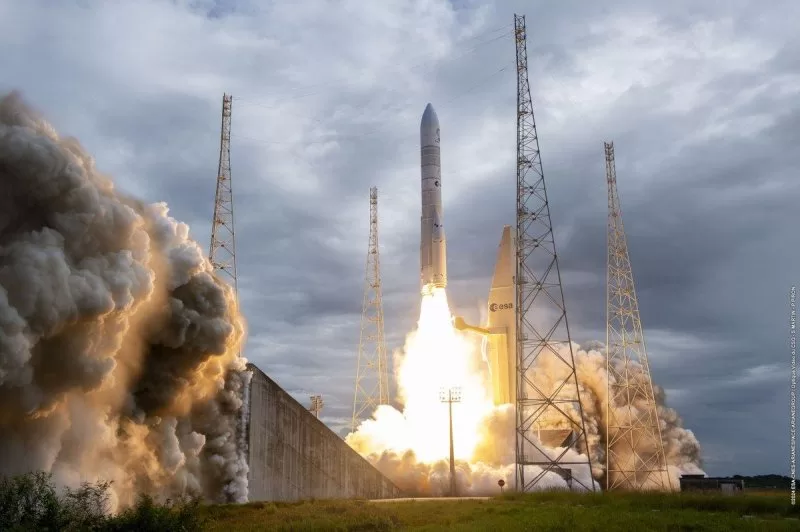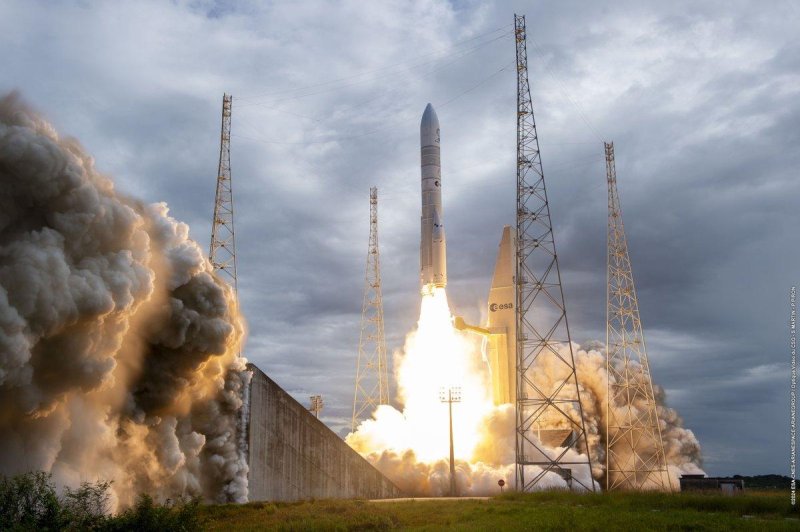1 of 3 | Ariane 6 launched from the European spaceport in Kourou, French Guiana, at about 4 p.m. local time. Photo courtesy of ArianeGroup/
XJuly 9 (UPI) — The European Space Agency’s new heavy-lift launch vehicle, Ariane 6, rocketed into space on its maiden flight Tuesday, re-entering the continent into the space race.
The rocket launched from the European spaceport in Kourou, French Guiana, at about 4 p.m. local time.
As the rocket took off, cheers from ground control were heard during the live broadcast.
“Europe is back in space!” the ESA celebrated on X.
The flight was a three-hour demonstration mission of the new launch vehicle that included the rocket leaving Earth and entering orbit, operating in space and deploying its payload of experiments and satellites that began about an hour after liftoff.
Smooth flying for much of the mission, the rocket experienced an anomaly during its final stage as its auxiliary power unit shut off, preventing the rocket from hitting its altitude target to deploy some of its remaining satellites.
Officials with ArianeGroup, which built the rocket, said despite the issue, the mission was a success.
Martin Sion, chief executive officer of ArianeGroup, explained in a press conference afterward that the mission hit its objectives and it’ll take time to understand not only the problem with APU but the scope of it.
“In the next days and weeks when we have all the data we will analyze to understand better what happened,” he said, adding that they believe this mission demonstrated the vehicle was ready for further flights.
The launch comes nearly a year after Ariane 5 flew its final mission, ending its near three-decade run that included 117 flights.
Ariane 6 is expected to be Europe’s space workhorse for years to come, with Josef Aschbacher, ESA director general, stating they are on schedule to launch another mission before the end of this year and before ramping up launches in 2025.
“This is an historic moment. An inaugural launch of a heavy launcher doesn’t happen every year. Probably every 20 years or maybe 30 years,” Aschbacher said in the press conference. “This is a big milestone.”
The sentiment among the men who spoke about the accomplishment was that the launch was not only a big step for the European Space Agency but for the continent’s people and businesses.
Philippe Baptist, president of France’s National Center for Space Studies, said it represents “Europe’s sovereignty, Europe’s access to space” as they now are no longer needing to rely on foreign nations and outside companies to reach beyond Earth.
“It’s a great success,” he said. “We are very, very happy about that.”

